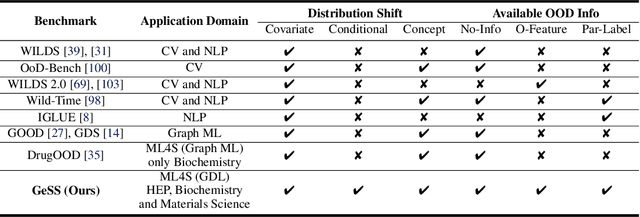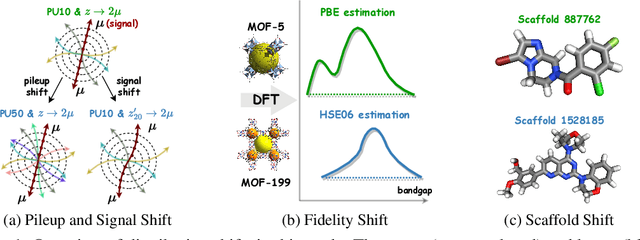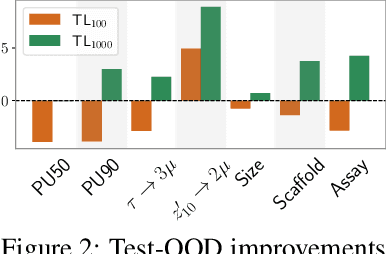GDL-DS: A Benchmark for Geometric Deep Learning under Distribution Shifts
Paper and Code
Oct 12, 2023



Geometric deep learning (GDL) has gained significant attention in various scientific fields, chiefly for its proficiency in modeling data with intricate geometric structures. Yet, very few works have delved into its capability of tackling the distribution shift problem, a prevalent challenge in many relevant applications. To bridge this gap, we propose GDL-DS, a comprehensive benchmark designed for evaluating the performance of GDL models in scenarios with distribution shifts. Our evaluation datasets cover diverse scientific domains from particle physics and materials science to biochemistry, and encapsulate a broad spectrum of distribution shifts including conditional, covariate, and concept shifts. Furthermore, we study three levels of information access from the out-of-distribution (OOD) testing data, including no OOD information, only OOD features without labels, and OOD features with a few labels. Overall, our benchmark results in 30 different experiment settings, and evaluates 3 GDL backbones and 11 learning algorithms in each setting. A thorough analysis of the evaluation results is provided, poised to illuminate insights for DGL researchers and domain practitioners who are to use DGL in their applications.
 Add to Chrome
Add to Chrome Add to Firefox
Add to Firefox Add to Edge
Add to Edge